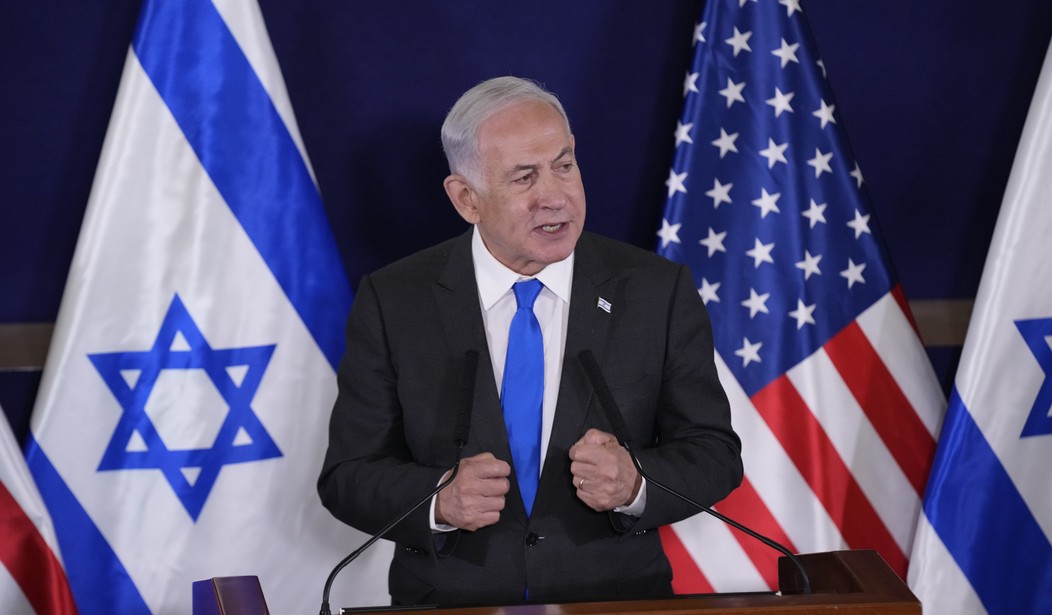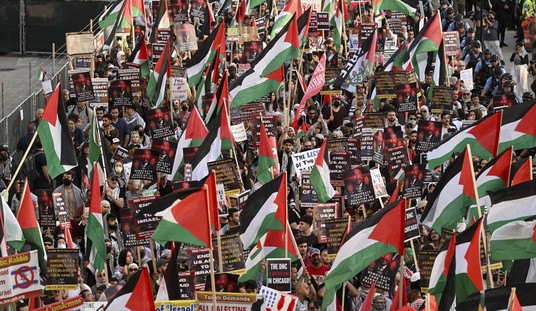Suuuuure looks like the end has come to Israeli patience. After allowing Hamas to manipulate talks for the last several months, negotiations collapsed over the weekend. US media reports put the onus on Benjamin Netanyahu for asserting -- as he has all along -- that he would not allow Hamas to remain in Gaza regardless of any hostage deals reached.
Instead, a Hamas attack on a key aid crossing yesterday turned out to be the last straw. Even the Egyptians are blaming Hamas for that:
Egypt, which alongside Qatar has mediated talks for the release of the remaining 132 hostages, worked to contain the damage to negotiations, which were also harmed by Hamas attack Sunday on the Kerem Shalom crossing that killed four soldiers.
An Egyptian source told Al-Qahera News that it was the Kerem Shalom attack Sunday that caused the talks to falter.
David will have more on this attack later, but that clearly appears to have provided a catalyst for the unity government to end its unilateral pause. Earlier today, Israel began its evacuation of eastern Rafah in anticipation of military action to finish off Hamas:
The Israeli military on Monday morning began calling on Palestinians to evacuate the eastern neighborhoods of Rafah in the southern Gaza Strip that are close to the Israeli border, ahead of a planned ground offensive in the area.
The civilians were being called to move to an expanded humanitarian zone in the al-Mawasi and Khan Younis areas of southern Gaza.
At 8 a.m. the Israel Defense Forces started to drop flyers in eastern Rafah, send text messages, and make phone calls to Palestinians with instructions on the areas that need to be evacuated, and which routes to take to a designated humanitarian zone.
It was inevitable in any case, especially given the equally consistent Hamas demand that Israel withdraw and leave the terror group responsible for the October 7 massacre in charge. Netanyahu blasted attempts to blame Israel for the collapse in talks:
Prime Minister Benjamin Netanyahu on Monday forcefully rejected a claim made by an Israeli official suggesting that the premier was responsible for torpedoing the latest round of talks with Hamas in Cairo on a potential hostage and truce deal.
The suggestion, said a statement from Netanyahu’s office, is “a complete lie and a deliberate deception of the public.”
“Hamas is the one that sabotages any deal by not moving one millimeter from its extreme demands that no Israeli government could accept,” the statement from Netanyahu’s office continued, “first and foremost, that Israel withdraw from Gaza and end the war.”
The idea that any Israeli government could accept those terms is absurd. While more dissension within the unity government has emerged, they have remained firm on the point that Hamas has to go, one way or the other. Israel's survival depends on it, and not just militarily. Hamas attempted to starve Israel by making its southern agricultural center unworkable; the Israelis require a significant number of foreign workers to produce their crops. The attack on the kibbutzes wasn't random but part of a strategy to starve Israel out of the Levant. In order to restore its ag sector, Israel needs to demilitarize Gaza and destroy Hamas and Palestinian Islamic Jihad for good.
Netanyahu's statement this week is no different than his statements all along. For that matter, Hamas' positions are even more unchanged over the same period. They will not leave and they will not surrender. Nearly six months ago, I predicted that the one operational pause (breached by Hamas, natch) would be the only such agreement, thanks to the diametrically opposed positions of the combatants. Neither side can budge from those strategic positions, and they can't be settled by yet another artificial freeze of the conflict.
The question now is whether the unity government truly intends to launch the Rafah offensive or just wants to force Hamas to buckle. The Biden administration made it tougher by reportedly suspending arms shipments to Israel, but the IDF would have made sure it had enough materiel for the planned operation before it started.
At least some Gazans hope that the evacuation order is a bluff intended to force serious concessions out of Hamas:
Kareem Jouda, who is staying near the affected neighborhoods, said he received a prerecorded phone call this morning from the Israeli military, telling residents to leave for al-Mawasi. Jouda, who is 28, said he hoped that the evacuation notice was an attempt by Israel to gain the upper hand in cease-fire talks, rather than a sign that a full-on offensive in Rafah was imminent.
“I wish that Israel did this just to put more pressure on Hamas to accept its conditions and accept its proposal to end this war,” he said.
We can probably anticipate an attempt by Hamas to call for renewed negotiations, if for no other reason than to forestall the attack again. They are already blaming Israel for the rupture in talks, as noted above, and warn that a Rafah operation would end them entirely. However, the attack on Kerem Shalom shows the risks the IDF takes in static defense and in providing aid security, and that can't keep going on for months. At some point, the IDF has to fish or cut bait.
That decision point has now arrived, and that means the Biden administration has a decision point, too. Either they can choose to align with Hamas, or they can align with Israel. Thus far they appear to have done far more of the former than the latter, while still posing for both sides. It's fish-or-cut-bait time for Joe Biden too, and a nation that is far more sympathetic to a liberal democracy than a radical jihadi terror network waits to see what Biden chooses.
Update: This comes as a little bit of a surprise, but it won't last:
Hamas has decided to freeze hostage deal negotiations in Cairo, an official told the UK-based news outlet The New Arab, KAN reported Monday.
This looks like a tactical move to isolate Israel diplomatically, especially with the US. Biden is talking with Netanyahu later today, but officials in the EU are already vocally objecting to the launch of the evacuation operation. EU foreign minister Josep Borrell called it a "forced relocation," even though the US and EU demanded an evacuation plan from Israel before launching a military operation against Rafah. The West is exposing a dangerous moral bankruptcy and craven retreat from terrorists. Israel's determination is making them look bad, and they know it.
When that doesn't stop Israel, Hamas will demand that talks reopen under a suspension of the Rafah operation. Bet on it.







Join the conversation as a VIP Member